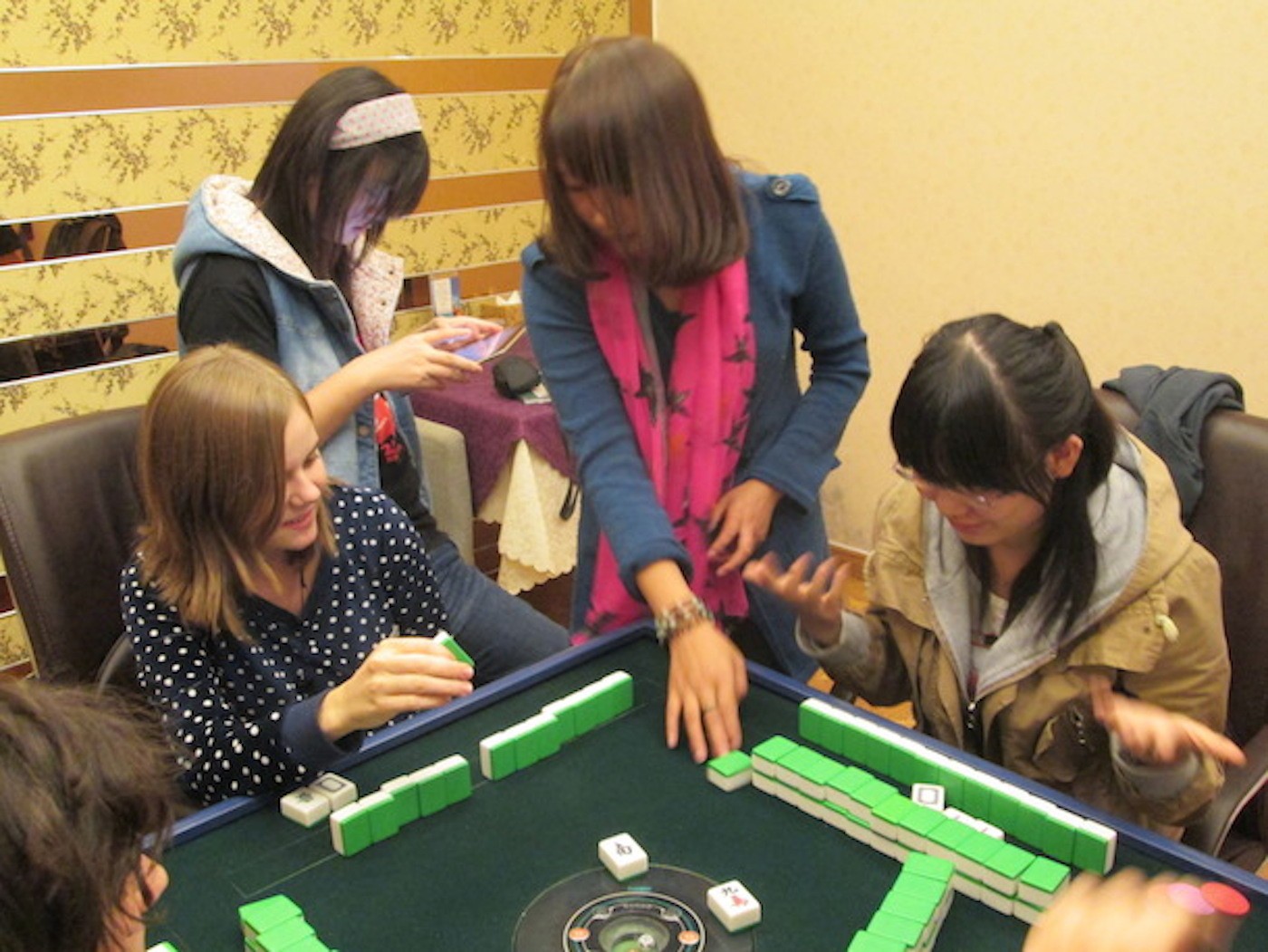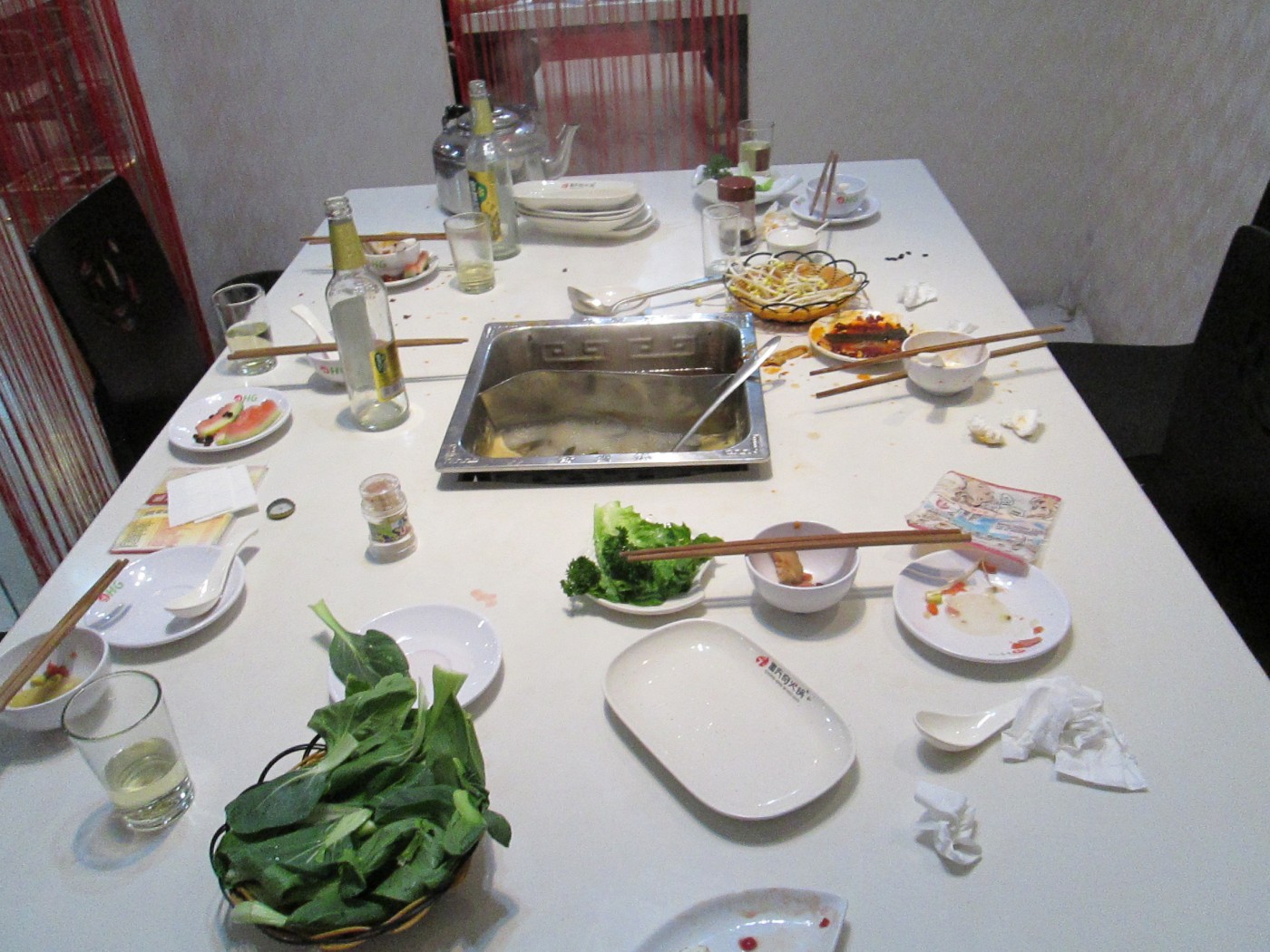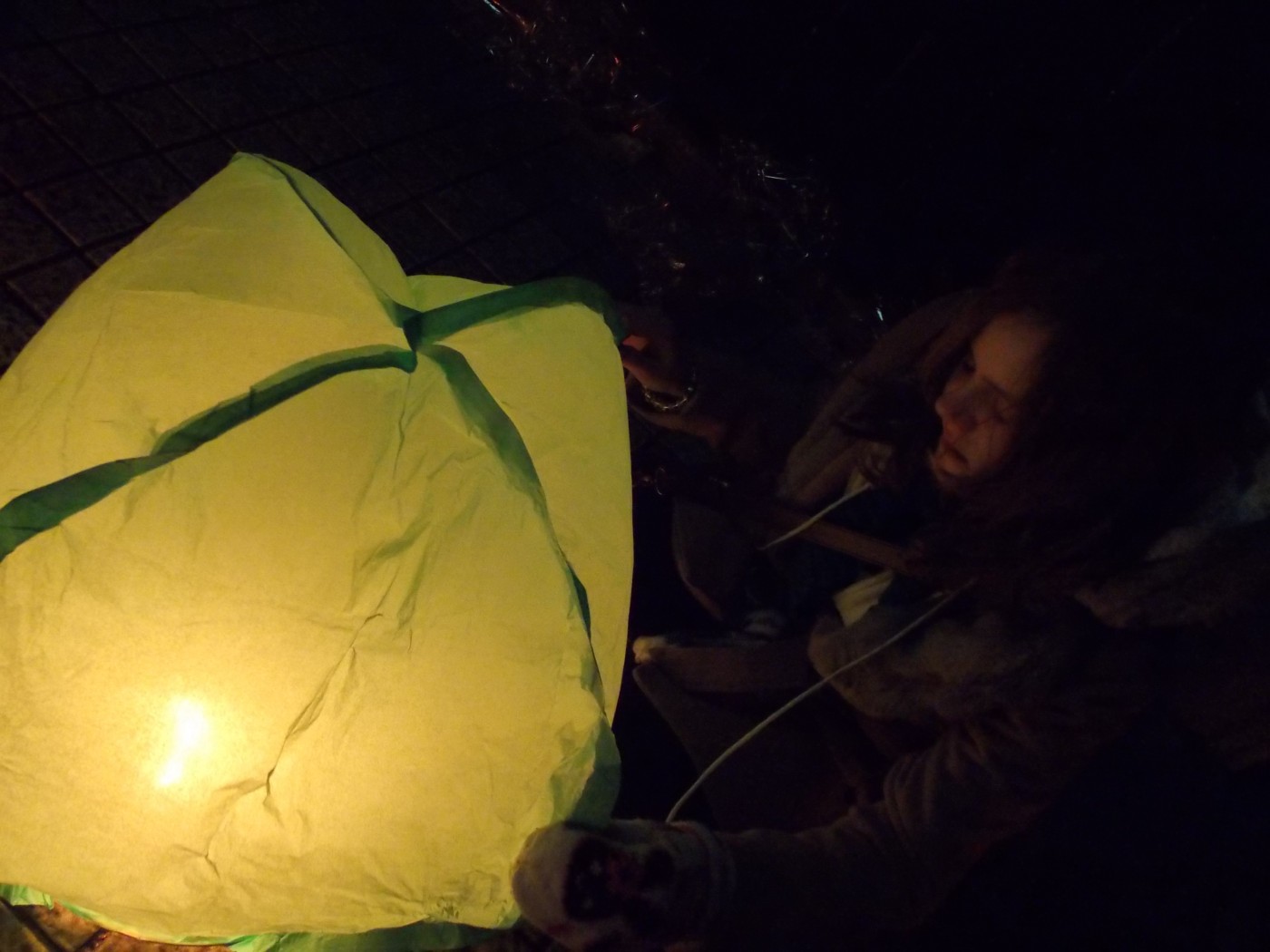Let Them Eat Dog: Adventures Teaching in China
I originally interviewed Susannah Fisher as part of a larger series about alternate approaches to success. It was April 2012, and rather than preparing for university, she was preparing for her first real job, teaching English as a second language, which would take her to Taiwan for a year. Her enthusiasm for her project, her desire to do things differently, her curiosity about and determination to see the world inspired me and made me want to know more – and to share her story. Despite a change in her expected country of employment, she carried out her plan to completion and brought back interesting stories and insights from her experience. A few months after her return, we met around soup dumplings and Szechuan noodles to discuss the difference between Canadian and Chinese educational systems, her growth as an individual, contract negotiations, and odd methods of meat preservation.
L: How long were you away for, and what did your trip consist of?
S: I left in September 2012 and I spent one year teaching in Hefei, China, seeing as most contracts are a yearlong. After that, I traveled around Asia, visiting Vietnam, Thailand and Taiwan.

S:Actually, yes! At first, when I came back, I did not think I did. I was just getting used to everything and thought that the extent of my acclimatization would be to find things a little bit strange and slightly different from how I had left them, but now that I have been back for some time, I really am starting to miss China, the food, my friends there…
L:The last time I talked to you, you had your mind set on moving to Taiwan; now I learn that you were hired to teach in China. What happened?
S:I applied to three different countries: China, Taiwan and Korea. However, it is very difficult to get a job in Korea if you do not have a bachelor degree. Taiwan is somewhat similar, although it is not impossible. The majority of companies I applied to were in China, as I wanted to leave sooner rather than later, and it was also them that sent the quickest replies. I decided not to wait and accepted the position. I had actually been in China for two months when I finally received an email from Taiwan asking me to come and work for them!
L:Now that you have visited Taiwan, do you regret your decision?
S:I do not. Even though an important part of Chinese culture still remains in Taiwan, it is overall a lot more westernized than the city I was teaching in. I would not have had the complete immersion that I was looking for.
L:Can you tell us about the accommodation?
S:When I first got there, the company wanted me to move in with the vice-principal. She was my boss, so I thought it would be very awkward. Someone who had already lived with her also told me that her apartment had bugs, and so on – which is ironic, considering that mine, too, turned out to have bugs! Anyway, I temporarily moved in with three other girls and several animals instead. I kept looking for a place of my own with the help of someone from the company, and I saw some terrible housing during the process. My standards became really low! [laughs] Eventually, I found an apartment. It was nice, but pretty basic, like you would expect a university apartment to look like. It had a dark board up on the wall, wine bottles to decorate… [laughs] Sometimes, I had roommates, other times I lived alone. The only problems were the poor insulation, which is common in China, the cockroaches, and the stuff that kept breaking – like the heater that melted onto itself and fell off the wall.
L:Aside from rebellious heaters and fending off cockroaches, what would a typical day involve? I remember you telling me that you intended to take language and martial arts classes.

L:How many hours per week did you work?
S:My contract specified 25 hours, with an extra ten office hours. Then again, if you were to take days off to celebrate their holidays, the company would make you work overtime to compensate. There was no vacation, which was typical for their Chinese employees. This did not happen to my foreign friends, though, hence the importance of negotiating your contract prior to leaving.
L:What kind of contract did you have?
S:I used to think a general contract was best, since I had seen highly specific contracts that stated, for instance, that you could not work with any other company in the same city for two years after the job had come to an end. It made me feel uncomfortable, so I opted for something more free, but in retrospective I would definitely recommend negotiating your contract and asking for anything that matters to you. One of my friends there even indicated precisely what furniture she expected to have in her house!
L:Is there anything else one should include in their contract?
S:Well, one thing to watch out for is contracts that do not mention whether your work hours will be consecutive or not. What companies usually do in that situation is give you a schedule with very long days, in which your classes are separated by several breaks. For example, I would finish at 9 in the evening when everyone else would finish at 8, and then I would have work very early the next morning. It makes you feel a little bit cheated. Another thing that should certainly go into your contract is that you want two days off, because that is not necessarily a given. I only had Tuesdays off.
L:Do you feel like the mandatory course you followed, “Teaching English as a Second Language,” helped you prepare for the job? What was most helpful? Is there anything you would recommend doing on your own?
S:It was helpful in the respect that it made me feel more confident about what I was doing. I was not going there with absolutely no idea of what to expect. In terms of what we actually learned, however… Not so much. Every company is different anyway and they look for different things in their teachers. They are also supposed to train you when you get there, which may or may not happen depending on their immediate need for teachers. They may just throw you to the wolves! [laughs] You learn through experience.
L:It sounds like companies are generally not very demanding in regard to their hiring criteria.

L:Did you have a lot of freedom in planning your lessons or were you asked to follow a curriculum?
S:At first, my Chinese teacher planned the lessons, but after that I was on my own. I had to follow a textbook that explained what the curriculum was, but the examples were really boring, so I just rewrote all of them. Then later on, I had to teach a class that had never been taught at this level. I looked at the textbook and it was basically everything that we had already done, so I talked to my vice-principal and we agreed that it was ridiculous. I ended up devising an entire course curriculum by myself!
L:Let’s say something comes up and you need to leave. How hard is it to get out of your contract?
S:It mostly depends on your school, on your reason and if you do leave, there are many things that you will not get – your bonus and the airfare back, for instance. They are used as ways to motivate people to stay. Some schools are really hard to leave, though. I heard about a girl whose school kept her passport! She ended up packing in the middle of the night and leaving without it. The best way to avoid this is to ask the company to put you in contact with someone who currently works or has worked there in the past. They will answer your questions. If the company refuses… You probably do not want to work for them! [laughs]
L:Stepping away from contracts and the business of teaching: can you tell us a little bit about Hefei? What kind of city was it? How were the people and the general mentality?
S:Hefei is a big city (7.52 million in 2012, Ed.). It actually used to be an agricultural center. They have developed it now, but most people still come from the country and go there either to work or to attend school, so a traditional mentality prevails. There are a lot of stereotypes associated with women. Their professional opportunities are also limited… There is the idea that they should not walk anywhere alone – despite it being one of the safest places I have ever been to – or that “good girls” do not party at clubs or bars. Those who do are considered “bad girls” and promiscuous. There is some change in that, but parents still really disapprove. Clubs are mostly filled with guys because of that. [laughs] It is a lot of fun, though! People often come up to you and bring you to the VIP section, where there are fancy fruit platters, free drinks and so on. Since there is not that many girls, clubs hire them to mingle with the customers and make them look important. [laughs]
L:Outside of clubs, did you find it difficult to spark interactions with the locals?
S:Not at all. They approach you! If I were eating at a restaurant alone, they would come up to my table and say hi. Some actually ran after me in the streets. I was on my way to work one day and this guy jogged up to me and asked if he could be my friend!
L:Were they very pushy?
S:It depends. They can be, but it is not all the time. I was fairly adamant anyway, and I think they are somewhat intimidated by foreigners. If a Chinese girl said that, maybe they would still be persistent…
L:It would appear, from what you said, that the general opinion towards foreigners is rather positive. Do you feel this is how you were perceived?
S:I guess I was considered what was… desirable. There is this ideal of perfect women, in China, called bái fù měi, which means “white, rich and beautiful.” For men, they say gāo fù shuài, or “tall, rich and handsome.” There were guys who asked me out after saying two words to me… Or no words at all. [laughs] It is very strange, because I do not look like the ‘boyfriend-stealing’ type, yet if I walked into the streets, there would be girls who would grab hold of their boyfriends and glare me down! Then again, I also had girlfriends in relationships who did not mind.
L:What about the other teachers? How many were there and did you make friends easily?
S:I did. There were three of us when I arrived, and 12 when I left. The place where I was living was a non-Westernized version of China, with fewer foreigners, so it was easy to develop closer relationships with my colleagues. There was not that many people I could talk to, especially when I first got there, as most people did not speak English.
L:Let’s say you want to go on your own and just show up at a school and offer your services. Can this be done or is it essential to go through an organization?
S:It can definitely be done – the only thing you will need is a visa to enter China. Actually, you can find a lot of better job opportunities that way, seeing as some of the schools do not advertise to Western countries. There was a school in my city hiring teachers and offering both a higher salary and less working hours than my company, but they were not advertising online. For a first experience, though, it is easier to do it with a company.
L:What are, in your opinion, some major differences between the Chinese and Canadian educational systems?
S:I think the parents are a lot more involved in China – maybe overinvolved. They would often come to the school, watch the classes… They would offer books for you to read.
L:Wait a second here. Books? About what?
S:About teaching! Scenarios, ideas… One of my mothers gave me a book about teaching English to your child, except none of the situations actually applied to the classroom environment. Also, some of the language was incorrect. There was this time when I literally spent half an hour with a class, and a parent approached me and asked me what I thought of their child. I had only spoken to her once! I had a lot of parents who wanted me to teach leadership to five-year-olds. Then again, I was teaching in a private school and most of the children were meant to take over the family business. There was a sort of pressure on them. They would constantly raise their hand to participate, to be the smartest. There were also more behavioural problems than there would be in western schools, I find, because a lot of the kids were only children and they were quite spoiled. They were used to getting whatever they wanted at home, so things like taking turns, sharing and so on occasionally caused some problems.
L:How could China be inspired by Canada? And vice-versa?

L:Let’s talk about the culinary arts, aka, how many times did you eat at McDonalds?
S:I rarely ever ate there! There was only one and it was quite far from my house. There were just no western restaurants at all. In any case, when you first get to China, you try to avoid Western cooking, because you get sick from eating it. Adding Western food to your stomach while it tries to adapt to local bacteria tends to mess you up. Even after we had been eating a Chinese diet for a long time, we would feel nauseous when occasionally ingesting Western food.
L:Did you get sick from eating Chinese food?
S:I did, and often, especially in the beginning. The people there are well aware of this and they were available to talk about it and to volunteer advice. To be completely honest, even the locals are sick sometimes, due to the lack of hygiene. People, for example, usually do not wash their hands.
L:Even the cooks?
S:I could not say, but even the kids at the school I worked for would go to the bathroom and come out without washing their hands. In all due respect, I think they just do not grasp the concept of sanitization.
L:What about the general quality of the food?
S:The meat quality is pretty bad. Power is expensive, so they use as little as possible, by avoiding turning their refrigerator on for instance. If the temperature is right, people will instead hang their meat wherever they can. I remember walking down the street once, and something really high up in the trees caught my attention. There, attached by a few hooks, were slabs of meat. It mostly happens when it is cold enough outside to preserve the meat, yet not so much that it will freeze it. There was this street near my house that we called Food Street, and every surface available was covered with meat. I even saw meat on campus, hanging between two badminton nets.
L:Moving on to the most fundamental question on the topic of food: do they eat cats and dogs?
S:Cats… Not that I know of… Although I would not be too surprised! But they definitely eat dogs. Most restaurants where I lived had “dog” written on the menu, even if it is technically illegal. One day, I was on my way to a foreign restaurant with a friend, and the place right next to the one we were going to had four dogs skinned and strung up outside the restaurant. It was disturbing. We took a picture, which made the owners angry, for obvious reasons… The dogs looked like they were stray, because of how skinny they were. There are actually so many of them in China that it is very easy to catch them, yet dog meat is expensive.
L:Did you have dog?
S:I did not. First of all, I saw those dogs and they looked very afraid. It is just hard to understand, especially from a Western point of view. I also talked to people who had eaten dog, and they said that the meat was quite gross and chewy. Pigeon, on the other hand, is the norm and I both ate it and liked it! Truth is, most of the chicken was not really chicken.
L:Can you tell the difference?
S:You can, because it is cut into smaller pieces, and the texture is not as dry.
L:What was the best food you ate in China? And the weirdest?
S:My favourite dish was gōngbǎo jīdīng, or Kung Pao chicken. It is served with vegetables and a tangy, sour, spicy, barbecue sauce. It was spicy, but not overly so, and that is probably what I ate the most. As for the weirdest, that would have to be duck blood soup, or duck brains. When you order a good amount of duck at a restaurant, they serve the head next to the platter of meat, and you are meant to eat it. I was having a fancy dinner with a friend once, and at the end of the meal, she took the head with her chopsticks, bit the top off and offered me the brain! It was tiny, merely a bite, but it tasted pretty good. I have also had lungs, which were not exactly delicious, but rather spongy.
L:Money-wise, how much did you make and how much do you have left?
S:I made 7000 RMB a month (currently equivalent to 1 245, 58 CAD, Ed.), and considering the very low cost of living, you can save quite a bit if you want to. I had to pay my amenities, but the apartment was provided by the school. I was able to save a little over 7000$, while eating out all the time, buying Chinese things such as clothes and objects, and generally having a really good lifestyle. I actually used some of that money to pay for my travels afterwards.
L:It’s story time. Tell us one wonderful moment that happened on your trip.
S:That would have to be Chinese New Year. We went to stay with one of our Chinese friends and her family, which was already amazing on its own. Their city was even more traditional than mine. I am sure we were the only foreigners there! For the night itself, we went to a temple. There were fireworks everywhere outside, in the sky, on the ground – it felt like being in the middle of a war zone! [laughs] It was loud and bustling with people. Inside the temple, there was fire and people lighting incense, it was wild and chaotic. Lastly, we lit lanterns and send them off while making a wish.
L:Has your Chinese improved?
S:Definitely! I did not know a single word when I first got there. I even mispronounced the name of the city. Now, I know enough to order food, get places, and have a basic conversation. I think it is even more cemented in my mind now that I have been back.
L:Did you notice any health or physical changes since your return?
S:My hair and nails grew much longer in China, and I apparently grew one inch throughout the year! The younger generation is also a lot taller than their parents. I suspect the government puts hormones in the food, to make up for the fact that so much of its population is poor and undernourished.
L:Do you feel changed spiritually? How have you grown as an individual?
S:I did not think I had changed, but I am realizing it now that I am back. I am more introspective… My philosophy has always been to be very open-minded, because you never know what someone has gone or is going through, and while my experience has reinforced that, it has also allowed me to be less afraid of making assumptions about people. I follow my intuition more. I guess in some ways, I am also more cynical. As a woman traveling by yourself, you are exposed to difficult situations and the darker side of people. I have had things stolen from me, some men were rude, especially in Vietnam, and it was harder to face that coming from China, where the culture is so respectful towards women.
L:What was the hardest part of your time in China?
S:Feeling repressed. Being surrounded by people who are constantly telling you that something is wrong makes you start to believe it, even though you try not to. I was wearing a shirt once that was not at all revealing, at least by our American standards, yet one of my guy friends literally stuffed my scarf down my shirt to hide my cleavage! [laughs] People just stare at you and judge you; it gets annoying. Being the center of attention also made me feel repressed. It is as simple as going to a music concert and having people constantly taking pictures of you, for what I assumed were promotional purposes. It is also being introduced to people and feeling as though they are showing you off. It can be fun, but not when they do not speak English and everyone just stands there awkwardly, staring at you and talking about you in Chinese.
L:What is the most important lesson you took back home?
S:Experiencing a different culture has taught me to accept certain things that I would not have necessarily been accepting of before I left. I saw how drastically different people’s ideals and way of life can be, and how they are influenced by society and what is expected of them. It allowed me to grasp why people do what they do.
L:What are your plans for the future?
S:I want to teach English as a second language for a living, so I will study that next fall, either at McGill or Concordia.
L:Three words to describe your experience.
S:Challenging. Dazzling. Perspective-altering.

Comments
No comments posted yet.
You have to be registered and logged in in order to post comments!